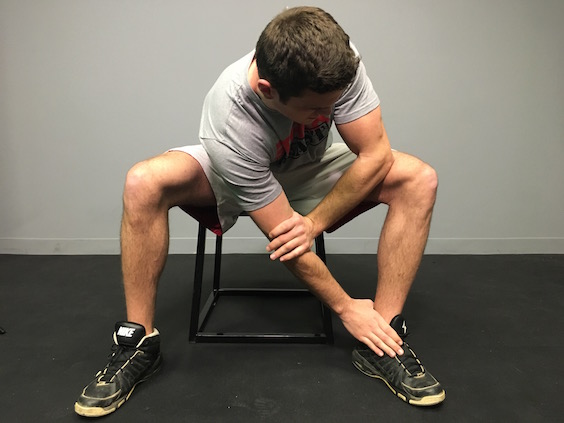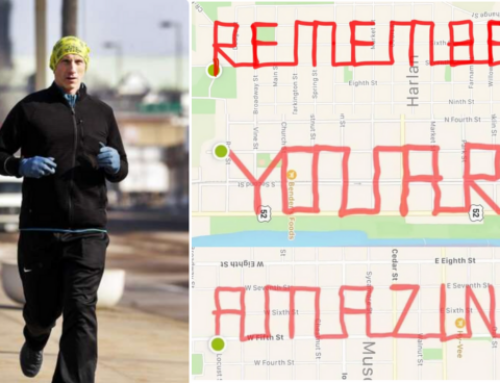Student-Athletes: It’s Okay Not To Be Okay
March 11, 2020, the day the sports world changed forever. I was driving north on Highway 75 through rural southeast Kansas on my way back to Emporia State University to start my final spring football camp. At 2:00 pm, I got a notification that the NCAA basketball tournament would not be allowing fans at any games due to the new risk of the coronavirus in the United States. At the time, this was unprecedented. Before this, it was unheard of to have an event of the NCAA basketball tournament’s magnitude with no fans. Where would the excitement be? Would the players even be motivated to play? Isn’t the NCAA going to lose all its revenue? Is this just a one-time thing?
On March 12, everything came crumbling to the ground. The NCAA basketball tournament was canceled; spring sports were canceled. The MLB and NBA seasons were suspended, and just about every large gathering for the next three months was put on hold.
Will Sports Ever Be The Same?
There are many differing opinions on whether this should be. I am here to bring attention to the often forgotten college athletes. Especially the seniors, who lost their last chance to prove the hard work they had put in for the last 15+ years was worth it. This virus is very deadly and should be taken extremely seriously; however, another overlooked piece of this is the mental health toll it has taken on all of us. Specifically, those that lost something significant to them because of the virus.
As a senior student-athlete, I have encountered the virus firsthand. Spring football was canceled altogether, and the last few in-person classes of my college career were moved to virtual. I cannot imagine how those winter athletes felt at their conference tournament or at the national tournament as their last games of being an athlete were stripped from them. I sometimes put myself in their shoes and imagine how that would feel, and I simply cannot imagine.
Cancellations are just a normal day in the life of being a student-athlete now. You may practice all week, but you know in the back of your head that there is a chance that you will not be playing that next game on the schedule. Some say that the worst part about this virus is the uncertainty of day-to-day life, and I believe that this influences most of the population’s quality of life. Life does not have to be this day-to-day uncertainty that the virus controls. We can take control, change the outcome, and control our side of the equation.
I heard a good metaphor about dealing with adversity once. There was a kid who was struggling with school and in his home life. His teacher realized it and pulled him aside one day and said, “I can see that you are going through a tough time. Go home and put a carrot in a boiling pot of water and tell me what it does tomorrow.” The boy did as he said, and the next day the boy came back and told his teacher that the carrot softened. The teacher said, “OK, now tonight, go home and put an egg in the boiling water and tell me what happens.” The boy did as he said again but was getting confused. He came back the next day and told the teacher that the egg hardened. “Now finally,” the teacher said, “go home tonight and put a coffee bean in the boiling water and tell me what happens.” The kid came back the next day and was excited because the coffee bean made coffee. The story’s point is that life is like boiling water. Whether it is a tough football game, financial instability, death, or the covid-19 virus, life will always be throwing wrenches in on your parade. How we respond to that is entirely up to us. We can be like the carrot and become soft and hide from our pain. We can become hard like the egg and completely ignore our problems and fight them all our life. Or we can be like the coffee bean and turn something that was intended to be a terrible situation into something amazing! What it comes down to is our choice! We have a choice every morning whether we are going to be the coffee bean or not. The virus has affected all of us differently. Still, at the end of the day, we are all being thrown into the boiling water in some way or another. Be the coffee bean today.
Overcoming Adversity
Researchers from the UK found that overcoming adversity was a common trait among Olympic champions. “The athletes all experienced numerous negative events during their development and before their gold medal victory. One of the most common adversities was a significant sporting failure; the majority of athletes had underperformed at a previous Olympics during their athletic career before their gold medal victory,” says Mustafa Sarkar, one of the study’s authors and a research fellow at the University of Gloucestershire.
All the greatest athletes of all time have faced some form of adversity. You cannot name one that has not gone through some catastrophic event or overcame a huge hurdle to get where they are! Some examples are: Tiger Woods, Michael Jordan, Tom Brady, Barry Sanders, and the list goes on. As athletes right now, it feels like our world is upside down, and the one thing that has always been a constant for us is no longer there. Based on research and a little life experience, I truly believe that these times will propel us to even greater things. If adversity is proportional to character development, then I think we are on character development performance-enhancing drugs.
Control the Controllables
A simple piece of advice that my football coach always told me in high school that has still stuck with me is to “control the controllables.”
There are things in life that we just cannot control like: the weather, other people’s opinions of us, disease, referees calls in a game, and the coronavirus. We can impact some of these things, but we cannot ever fully control them. However, there are some things that we can control: our attitude towards others, our presentation and body language, our effort towards our sports, relationships, jobs, your physical and mental preparation towards your sport or job, how serious you take rest and nutrition, and your attitude towards the coronavirus. In these troubling times, why worry about the things that we will never have control over when we can hold onto all the things we do. Jimmy V said it best “cancer can take away all of my physical abilities. It cannot touch my mind, it cannot touch my heart, and it cannot touch my soul.”
92% Of The Things We Fear Will Not Come True
Worry is interest paid on problems yet to happen. I have some buddies that have their MBA’s, and if I told them I decided to start paying interest on a new house, but I was not even going to buy it. I do not feel like they would be very pleased with my business decision. So, why do we allow fear and worry about the worst possible outcomes to creep into our minds and steal our joy? Based on research, 92% of the things we fear will not ever come true. Life is too short to allow our fears to cut us short of our goals and aspirations for life!
These life lessons and metaphors are fantastic, and I truly find myself applying them almost every day. Still, mental health disorders are a whole different beast. Mental health awareness has been growing over the past decade. Mental illnesses are just as severe and possibly more serious than any physical diseases or injuries. Anyone that has gone through anxiety, depression, bipolar disorder, etc., knows exactly what I am talking about. These illnesses can truly ruin and in some cases, end people’s lives. My wife is an ICU nurse and has experienced these disorders firsthand over the past nine months. She had no prior history of mental illnesses, but this virus has pushed her to the limit and into an anxious and depressive state. Just like essential workers, athletes are at an increased risk for these mental disorders during this time.
In a study done by the British Journal of Sports Medicine, stated that “athletes may be at heightened risk for mental health symptoms and disorders, and careful consideration of the pandemic’s impact on the management of those symptoms and disorders is paramount”.
The Pandemic
The pandemic has taken the athlete’s identities away from them. They have no idea when or if they will be able to step on their respective playing field the next time. Many students had been diagnosed with a mental disorder pre-COVID-19. They were taking the proper steps to work on it and better themselves. Most of this involved in-person therapy on campus. For most students around the country, this may not be available anymore because “during non-pandemic times, a physician must be licensed in the state where the patient is physically located, and most physicians are only licensed in a single state. Currently, many collegiate and other elite athletes may not be where their team, coach, university, and/or healthcare providers are located” (Reardon). Most student-athletes have returned to their home state, making a therapy session over zoom illegal.
Eating Disorders
Another common problem that athletes struggle with is eating disorders. Having an in-person meeting for this disorder is almost a must because “at least some aspects of physical examination would be conducted (including blinded weight, blood pressure, heart rate, temperature and examination of the throat, heart, lungs, and extremities). Laboratory tests, ECGs or radiological imaging are also commonly obtained in athletes with eating disorders during non-pandemic times” (Reardon). As you can see, there are plenty of growing mental health issues that are not being shown in the news, not just with athletes but with everyone. These problems are not going to fix themselves and some light needs to be shed on the athletes going through this as we speak. Many high school seniors lost their last baseball season with their best friends that they had been playing with since they were four years old. Less than 10% of high school athletes play in college, so for most of these seniors, the last time they ever played their sport was the previous May. A lot of these athletes probably struggled for quite some time. Looking for anyone to understand their pain. But this had never happened before. No one could truly empathize with them.
The core message is to let these people know that it is OK to not be OK. BUT ITS NOT OK TO STAY THAT WAY. If this pandemic has sent you down a path of anxiety and depression, you are not alone. Many other athletes worldwide are struggling with the same thing, and I think the best cure is to simply talk about it with them. Find someone who lost their last season or was sent home while at the conference championship and speak to them. Relationships are the fuel for joy. It is OK not to be OK, but hiding it and trying to smile for the world whenever everything is not OK is the worst thing you can do.
RECOMMENDED FOR YOU
MOST POPULAR
Student-Athletes: It’s Okay Not To Be Okay
March 11, 2020, the day the sports world changed forever. I was driving north on Highway 75 through rural southeast Kansas on my way back to Emporia State University to start my final spring football camp. At 2:00 pm, I got a notification that the NCAA basketball tournament would not be allowing fans at any games due to the new risk of the coronavirus in the United States. At the time, this was unprecedented. Before this, it was unheard of to have an event of the NCAA basketball tournament’s magnitude with no fans. Where would the excitement be? Would the players even be motivated to play? Isn’t the NCAA going to lose all its revenue? Is this just a one-time thing?
On March 12, everything came crumbling to the ground. The NCAA basketball tournament was canceled; spring sports were canceled. The MLB and NBA seasons were suspended, and just about every large gathering for the next three months was put on hold.
Will Sports Ever Be The Same?
There are many differing opinions on whether this should be. I am here to bring attention to the often forgotten college athletes. Especially the seniors, who lost their last chance to prove the hard work they had put in for the last 15+ years was worth it. This virus is very deadly and should be taken extremely seriously; however, another overlooked piece of this is the mental health toll it has taken on all of us. Specifically, those that lost something significant to them because of the virus.
As a senior student-athlete, I have encountered the virus firsthand. Spring football was canceled altogether, and the last few in-person classes of my college career were moved to virtual. I cannot imagine how those winter athletes felt at their conference tournament or at the national tournament as their last games of being an athlete were stripped from them. I sometimes put myself in their shoes and imagine how that would feel, and I simply cannot imagine.
Cancellations are just a normal day in the life of being a student-athlete now. You may practice all week, but you know in the back of your head that there is a chance that you will not be playing that next game on the schedule. Some say that the worst part about this virus is the uncertainty of day-to-day life, and I believe that this influences most of the population’s quality of life. Life does not have to be this day-to-day uncertainty that the virus controls. We can take control, change the outcome, and control our side of the equation.
I heard a good metaphor about dealing with adversity once. There was a kid who was struggling with school and in his home life. His teacher realized it and pulled him aside one day and said, “I can see that you are going through a tough time. Go home and put a carrot in a boiling pot of water and tell me what it does tomorrow.” The boy did as he said, and the next day the boy came back and told his teacher that the carrot softened. The teacher said, “OK, now tonight, go home and put an egg in the boiling water and tell me what happens.” The boy did as he said again but was getting confused. He came back the next day and told the teacher that the egg hardened. “Now finally,” the teacher said, “go home tonight and put a coffee bean in the boiling water and tell me what happens.” The kid came back the next day and was excited because the coffee bean made coffee. The story’s point is that life is like boiling water. Whether it is a tough football game, financial instability, death, or the covid-19 virus, life will always be throwing wrenches in on your parade. How we respond to that is entirely up to us. We can be like the carrot and become soft and hide from our pain. We can become hard like the egg and completely ignore our problems and fight them all our life. Or we can be like the coffee bean and turn something that was intended to be a terrible situation into something amazing! What it comes down to is our choice! We have a choice every morning whether we are going to be the coffee bean or not. The virus has affected all of us differently. Still, at the end of the day, we are all being thrown into the boiling water in some way or another. Be the coffee bean today.
Overcoming Adversity
Researchers from the UK found that overcoming adversity was a common trait among Olympic champions. “The athletes all experienced numerous negative events during their development and before their gold medal victory. One of the most common adversities was a significant sporting failure; the majority of athletes had underperformed at a previous Olympics during their athletic career before their gold medal victory,” says Mustafa Sarkar, one of the study’s authors and a research fellow at the University of Gloucestershire.
All the greatest athletes of all time have faced some form of adversity. You cannot name one that has not gone through some catastrophic event or overcame a huge hurdle to get where they are! Some examples are: Tiger Woods, Michael Jordan, Tom Brady, Barry Sanders, and the list goes on. As athletes right now, it feels like our world is upside down, and the one thing that has always been a constant for us is no longer there. Based on research and a little life experience, I truly believe that these times will propel us to even greater things. If adversity is proportional to character development, then I think we are on character development performance-enhancing drugs.
Control the Controllables
A simple piece of advice that my football coach always told me in high school that has still stuck with me is to “control the controllables.”
There are things in life that we just cannot control like: the weather, other people’s opinions of us, disease, referees calls in a game, and the coronavirus. We can impact some of these things, but we cannot ever fully control them. However, there are some things that we can control: our attitude towards others, our presentation and body language, our effort towards our sports, relationships, jobs, your physical and mental preparation towards your sport or job, how serious you take rest and nutrition, and your attitude towards the coronavirus. In these troubling times, why worry about the things that we will never have control over when we can hold onto all the things we do. Jimmy V said it best “cancer can take away all of my physical abilities. It cannot touch my mind, it cannot touch my heart, and it cannot touch my soul.”
92% Of The Things We Fear Will Not Come True
Worry is interest paid on problems yet to happen. I have some buddies that have their MBA’s, and if I told them I decided to start paying interest on a new house, but I was not even going to buy it. I do not feel like they would be very pleased with my business decision. So, why do we allow fear and worry about the worst possible outcomes to creep into our minds and steal our joy? Based on research, 92% of the things we fear will not ever come true. Life is too short to allow our fears to cut us short of our goals and aspirations for life!
These life lessons and metaphors are fantastic, and I truly find myself applying them almost every day. Still, mental health disorders are a whole different beast. Mental health awareness has been growing over the past decade. Mental illnesses are just as severe and possibly more serious than any physical diseases or injuries. Anyone that has gone through anxiety, depression, bipolar disorder, etc., knows exactly what I am talking about. These illnesses can truly ruin and in some cases, end people’s lives. My wife is an ICU nurse and has experienced these disorders firsthand over the past nine months. She had no prior history of mental illnesses, but this virus has pushed her to the limit and into an anxious and depressive state. Just like essential workers, athletes are at an increased risk for these mental disorders during this time.
In a study done by the British Journal of Sports Medicine, stated that “athletes may be at heightened risk for mental health symptoms and disorders, and careful consideration of the pandemic’s impact on the management of those symptoms and disorders is paramount”.
The Pandemic
The pandemic has taken the athlete’s identities away from them. They have no idea when or if they will be able to step on their respective playing field the next time. Many students had been diagnosed with a mental disorder pre-COVID-19. They were taking the proper steps to work on it and better themselves. Most of this involved in-person therapy on campus. For most students around the country, this may not be available anymore because “during non-pandemic times, a physician must be licensed in the state where the patient is physically located, and most physicians are only licensed in a single state. Currently, many collegiate and other elite athletes may not be where their team, coach, university, and/or healthcare providers are located” (Reardon). Most student-athletes have returned to their home state, making a therapy session over zoom illegal.
Eating Disorders
Another common problem that athletes struggle with is eating disorders. Having an in-person meeting for this disorder is almost a must because “at least some aspects of physical examination would be conducted (including blinded weight, blood pressure, heart rate, temperature and examination of the throat, heart, lungs, and extremities). Laboratory tests, ECGs or radiological imaging are also commonly obtained in athletes with eating disorders during non-pandemic times” (Reardon). As you can see, there are plenty of growing mental health issues that are not being shown in the news, not just with athletes but with everyone. These problems are not going to fix themselves and some light needs to be shed on the athletes going through this as we speak. Many high school seniors lost their last baseball season with their best friends that they had been playing with since they were four years old. Less than 10% of high school athletes play in college, so for most of these seniors, the last time they ever played their sport was the previous May. A lot of these athletes probably struggled for quite some time. Looking for anyone to understand their pain. But this had never happened before. No one could truly empathize with them.
The core message is to let these people know that it is OK to not be OK. BUT ITS NOT OK TO STAY THAT WAY. If this pandemic has sent you down a path of anxiety and depression, you are not alone. Many other athletes worldwide are struggling with the same thing, and I think the best cure is to simply talk about it with them. Find someone who lost their last season or was sent home while at the conference championship and speak to them. Relationships are the fuel for joy. It is OK not to be OK, but hiding it and trying to smile for the world whenever everything is not OK is the worst thing you can do.












